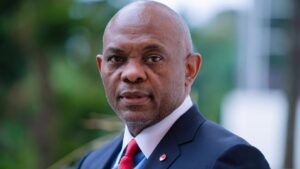Vandalism/global price surge: Oil firms’ borrowing from banks hits N5.6trn
By Uthman Salami
Debts owed by oil companies in Nigeria have surged to over N5.6 trillion following rising vandalism and inability of oil firms to pay back loans raised from banks despite unexpected increase in global crude oil price and oil thefts.
According to the data released by the Central Bank of Nigeria, it was gathered that borrowings from the operators in the oil sector rose to N290billion from Nigerian banks in 2021.
The data by the Central Bank of Nigeria further revealed that the debt of companies in the oil and gas sector increased to N4.21trillion in December from N3.92trillion in January 2021.
Borrowings by operators in the upstream sector and services subsectors from banks increased to N1.47trillion in December, an increase of N200billion from N1.27trillion in January 2021.
Oil and gas operators’ debt stood at N5.68trillion, which represents 23.3 per cent of the N24.38trillion loans advanced to the private sector by the nation’s banks, according to the sectoral deposit money banks’ credit by the CBN as of December 2021.
The data from the Apex bank further showed that the oil and gas firms received the largest chunk of the share of the deposit money banks’ credit disbursement to the private sector.
Oil and Gas stakeholders raise alarm over spate of vandalism, oil theft
Meanwhile, some stakeholders in the oil and gas industry have raised alarm over incessant increased in oil theft and vandalism especially in the Niger Delta region.
Earlier, the Petroleum and Natural Gas Senior Staff Association of Nigeria in March raised the alarm over the huge losses incurred by operators in the oil and gas industry as a result of vandalism and oil theft.
The President of PENGASSAN, Festus Osifo, noted that between October 2021 and February 2022, over 90 per cent of crude oil pumped into the Trans National Pipeline by operators was vandalised, stating that this made Nigeria lose out on accruing more revenue despite the current high price of crude oil in the international market.
Osifo said another problem arising from vandalism was that companies were being forced to go into curtailment when the assets/export pipelines were damaged as they could not export what they produced, thereby incurring production losses.
He said each operator in the sector loses an average of 10 days of production shut-in monthly due to vandalism.
He said, “Recent preliminary work showed that about 150 illegal tappings were used in siphoning crude oil from the TNP.
“This has forced all operators injecting crude into the TNP to suspend export/injection thereby shutting-in production. Total Energies and SPDC for example stopped production into the TNP pipeline while Agip Eni declare force majeure on their brass terminal.”
Last month, the Chairman of the United Bank of Africa, Tony Elumelu, that Nigeria is losing 95 per cent of oil production to thieves at Bonny Terminal, Rivers State.
Elumelu had said Nigeria was losing 95 per cent of production at the Bonny terminal to vandals making Shell declare force majeure production activities on that field.
“Look at Bonny Terminal that should be receiving 200k barrels per day, instead it received less than 3,000 barrels, leading the operator like Agip and Shell to declare force majeure,” Elumelu tweeted.
The Group Managing Director of the Nigerian National Petroleum Company Limited (NNPC), Mele Kyari, corroborated spate in oil theft and vandalism
The GMD told the panel of lawmakers that Nigeria could only get 3,000 barrels out of 239,000 barrels injected into the pipeline from Bonny Terminal.
He further disclosed that the country lost $4 billion to theft at the rate of 200,000 barrels per day in 2021.
He added that the country already lost $1.5billion so far in 2022 because the vandalism has escalated.
Meanwhile, an oil and gas analyst, Bala Zaka said vandalism and insecurity among the major concerns in the sector were responsible for high borrowings.
He described these factors as the primary reasons for the high rate of borrowing among oil firms.
Zaka said this while speaking on vandalism and insecurity with one of the National dailies, not Nigerian NewsDirect.
He affirmed that crime had increased the operating cost of oil and gas firms. He said oil firms had been forced to turn to financial institutions in a bid to offset the growing costs of borrowings.
According to him, “The operating cost of oil and gas firms, both those in the downstream and upstream sub-sectors, is very high now, particularly because of issues of vandalism and security.
“You will see that because of insecurity problems, many of these companies, both onshore and offshore; employ the services of heavy security personnel to safeguard their equipment. Sometimes even their staff has to be secured.
“This additional security costs a lot of money; this is affecting their bottom line and profit before tax.
“On the issue of vandalism, I have observed that a lot of these firms are being harassed by their host communities which is why improve their CSR and give back to these communities.
“Again, for companies who have joint-venture relationships with the government or the Nigerian National Petroleum Corporation; there is what we call cash call.
“This is a situation where for every well the companies intend to explore, the Federal Government is supposed to contribute about 60 per cent of the cost of exploration, but most of the time they don’t.
“So these oil companies are forced to source for the 60 per cent from financial institutions,” he concluded.




